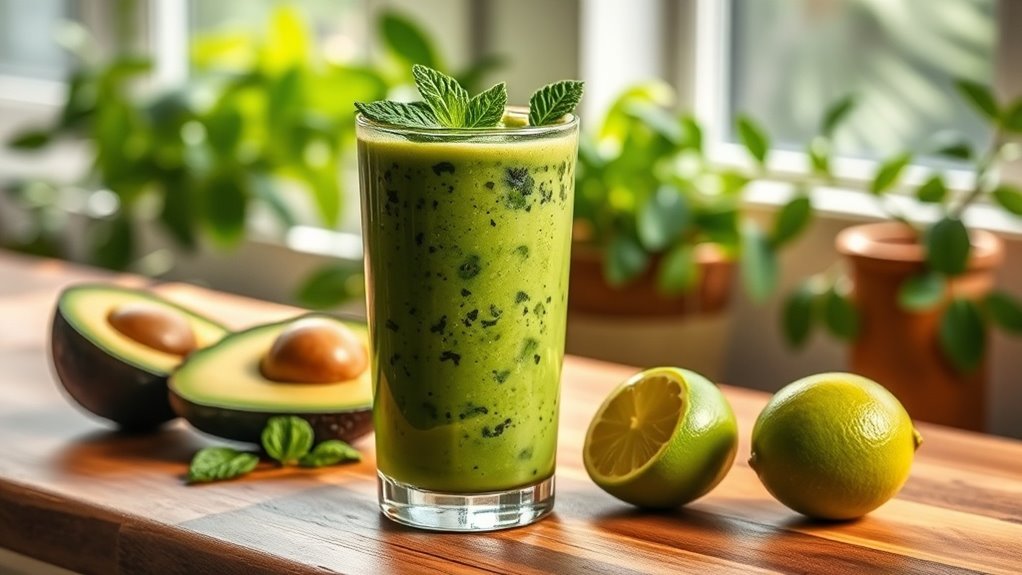Why You Crave Junk Food When You’re Tired (and What to Do Instead)
Have you ever wondered why, when you’re tired, all you want is a sugary snack or greasy fast food? It turns out that fatigue triggers hormonal changes in your body that can amplify cravings for unhealthy foods. Understanding these mechanisms is crucial for making better choices. What if there’s a way to combat these cravings effectively, so you can fuel your body with the nutrients it really needs?
The Science of Fatigue and Food Cravings
When you’re tired, your body’s chemistry shifts, leading to increased cravings for high-calorie foods.
Research shows that fatigue can disrupt hormone levels, particularly ghrelin and leptin, which regulate hunger.
Lower energy levels may also heighten the desire for quick sources of energy, resulting in cravings for sugary and fatty foods.
Understanding these mechanisms can help you make healthier choices when fatigue strikes. Additionally, recognizing how stress influences food choices can further assist you in navigating cravings more effectively.
Emotional Eating: How Tiredness Affects Your Choices
Feeling tired can significantly influence your emotional state and lead to poor food choices.
When fatigue sets in, your brain craves quick satisfaction, pushing you towards sugary snacks or greasy meals. This response to tiredness can create a cycle of emotional eating. Common triggers of emotional eating can further exacerbate this tendency, making it essential to recognize your feelings.
To counteract this, try incorporating balanced, nutrient-rich meals throughout the day to stabilize your energy and moods.
Physiological Responses: Hormones and Hunger
Fatigue not only clouds decision-making but also triggers specific physiological responses that impact hunger.
When you’re tired, your body experiences:
- Increased ghrelin production, boosting appetite.
- Decreased leptin levels, causing hunger signals to intensify.
- Elevated cortisol levels, which may increase cravings for high-calorie foods.
- Altered insulin sensitivity, affecting how your body processes sugar.
These hormonal changes make junk food even more tempting. Additionally, stress-related eating patterns can worsen the desire for unhealthy food choices.
The Impact of Sleep Deprivation on Nutrition
Although sleep deprivation can seem like just a temporary inconvenience, it significantly disrupts your nutritional choices and overall health.
Lack of sleep affects your appetite-regulating hormones, leading to cravings for high-calorie, sugary foods. When you’re tired, your decision-making abilities falter, resulting in poorer food choices.
Prioritizing quality sleep is essential for maintaining balanced nutrition and supporting your body’s health. Additionally, recognizing emotional eating triggers can help you choose healthier options when fatigue sets in.
Healthier Snack Alternatives When You’re Tired
When you’re tired, choosing the right snack can make all the difference in your energy levels and mood. Instead of reaching for junk food, try these healthier alternatives:
-
Greek yogurt with fruit
-
Hummus with carrot sticks
-
Almonds or walnuts
-
Whole grain toast with avocado
These options provide nutrients that stabilize energy and enhance your mood, helping you power through the fatigue. Prioritizing whole foods can significantly improve your overall health and energy levels.
Strategies to Combat Junk Food Cravings During Fatigue
Feeling tired can trigger intense cravings for junk food, making it all too easy to give in to unhealthy choices.
To combat this, stay hydrated, as thirst can mimic hunger. Incorporate small, balanced meals throughout the day to maintain energy levels.
Lastly, engage in quick physical activity—like a brisk walk—to boost your mood and energy, helping to curb those cravings effectively.




